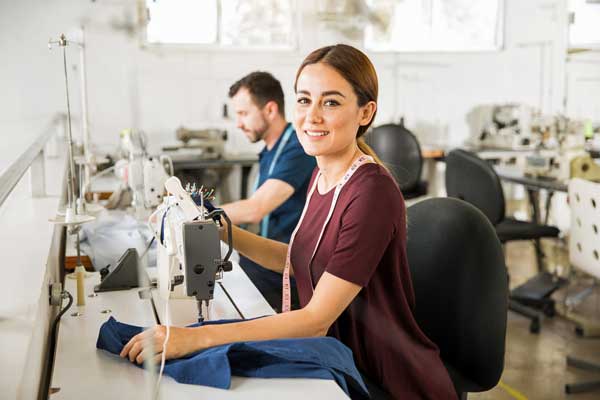Industrial sewing machines are a must-have when producing garments or textiles on a large scale. They are built to be more powerful and durable than domestic sewing machines to ensure that you can get work done more quickly. That said, if you consider upgrading your device to turn your sewing skills into a small business, you might be overwhelmed about what to get.
In essence, industrial sewing machines are designed for professional and commercial use, so you often see them in businesses and factories. They can handle more rigid fabrics and withstand extended use but often come at a higher cost. The big dilemma is deciding what machine is worth the investment, so here is some information to help you through the buying process.
Choosing an Industrial Machine
There are many things to consider with industrial sewing machines. They come in different brands, makes, models, and types, so here are some top factors to look into before deciding:
Space
How much space do you have to house the machine if you are moving from a domestic to an industrial sewing machine? Check the specifications of a machine before buying one since the last thing you want is to have problems with where to place it!
Use
What do you plan to do with your machine? Generally, industrial sewing machines are powered to produce specific stitches in large volumes, so they are often used to specialize in a particular task. Since you have limited versatility, you want to make sure you think about what you plan to do with the machine. What materials do you plan to work with? What types of stitches do you need to use?
Different industrial machines are designed for specific uses, so it helps to familiarise yourself with your options. For example, post-bed machines are typically suitable for car seat upholstery, whereas cylinder bed machines are good for sewing pillowcases and hems. If you plan to handle heavy-duty fabrics, you may want to consider a zigzag machine to ensure that you can sew through the tougher materials.
Noise
Since industrial sewing machines are more powerful than domestic machines, their motors also produce more noise. Industrial machines are usually built with either clutch or servo motors. The clutch motors are generally heavier and louder, but they make up for this with their durability. On the other hand, servo motors are more silent but work better with light and medium fabrics than heavy-duty ones.
Brand Reputation
Researching before making any investment always pays off. Before committing to any brand, check out the company’s reputation, track record, and expertise in manufacturing industrial machines. You want to make sure that they are known for producing top-quality machines and have a good support team to help you out if you run into any issues.
Availability of Parts
One thing that is often ignored is the availability of parts. People do not usually think about spare parts when buying a brand new sewing machine, but thinking ahead will ensure that you do not have problems with repairs later. As much as possible, it is best to find a machine of which the parts are readily available since it will be a huge inconvenience if you have to wait a long time to get spare parts later on.

